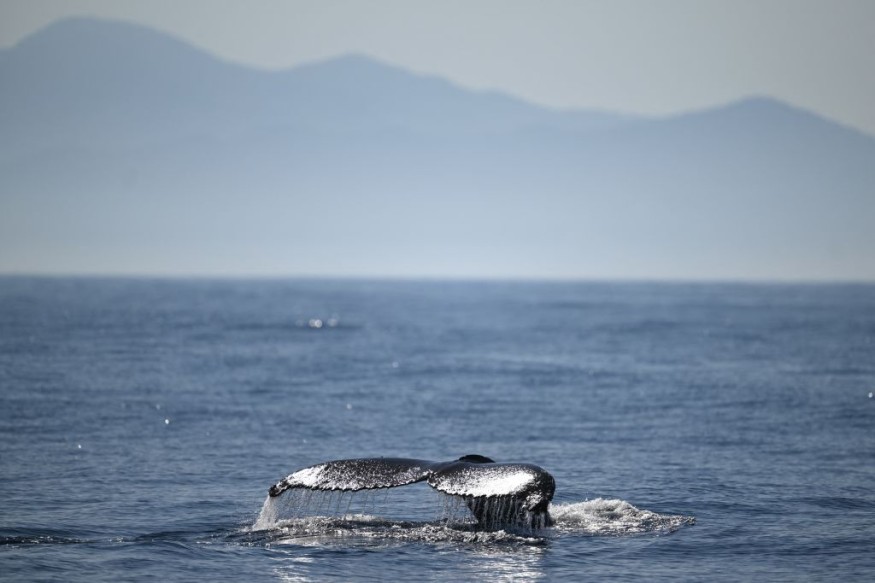A study done by the team from University of Queensland shows that humpback whales that migrate off the east coast of Australia experienced a decrease in stress during the COVID-19 pandemic.

Lower Cortisol Level
In an unparalleled period of human activity change, researchers at UQ's School of the Environment, led by Dr. Jake Linsky, conducted a study out of the Moreton Bay Research Station to assess the health of the species.
Between 2020-2021, the condition of East Australian humpback whales within the waters surrounding Minjerribah or North Stradbroke Island was assessed by checking drones' photos and blubber samples.
Linsky explained that they wanted to assess the health of this population, which has recovered from historic whaling in one of the best ways possible.
The drone was used to measure the size of the whale and their body condition.
"These are essential indicators of energy stores used during their long annual migration and intense breeding period," Dr. Linsky said.
Moreover, whales were confronted by the researchers in small boats so as to take minor skin and blubber samples from their sides whereby said samples were scrutinized for hormones and gene expressions related to stress, energy stores, and immune competence.
During the year 2021, the level of cortisol for whales was significantly under the one recorded in 2020 as shown by the lab results. It might argue that such a shift in physiology implies lower environmental pressures during a time span of two years.
The claim for establishing marine protected areas and introducing tougher laws on shipping and pollution is based on the decrease in cortisol levels that was observed.
Indicator Of Antarctic Ecosystems
During this time, a number of events occurred that probably influenced the results, such as the environment changing into La Niña and the significant adjustments made to human activities during the pandemic.
An additional theory suggested by our gene expression data is that the whales might have been reacting to a drop in pollution in their far-off feeding areas.
The findings of the survey support the theory that similar alterations in response to stress took place in the Southern Ocean, for similar changes in whale stress hormones were detected in earlier research from the other side of Antarctica.
The study has demonstrated that migrating whales serve as good indicators of the quality of the marine ecosystems in the Antarctic.
While humpback whales in eastern Australia have shown the remarkable ability to adapt to environmental changes, the study points out that it is necessary to minimize human influence so as to allow these animals to continue thriving in rapidly changing waters.
Linsky mentioned that by observing and providing important details on how other endangered whale groups might be saved, experts will assure the health and stability of humpback whales along the coast of eastern Australia.
The study further argued on the importance of international collaboration in marine conservation due to the fact that migratory species, such as humpback whales, travel long distances across the ocean.
It added that it is important to work together to ensure that these animals get some place safe. This is critical for them to have any chances in such a world where things keep on changing.
Related Article : Two Humpback Whales Caught in Shark Nets Off the Queensland Coast During a Whale Migration
© 2025 NatureWorldNews.com All rights reserved. Do not reproduce without permission.





